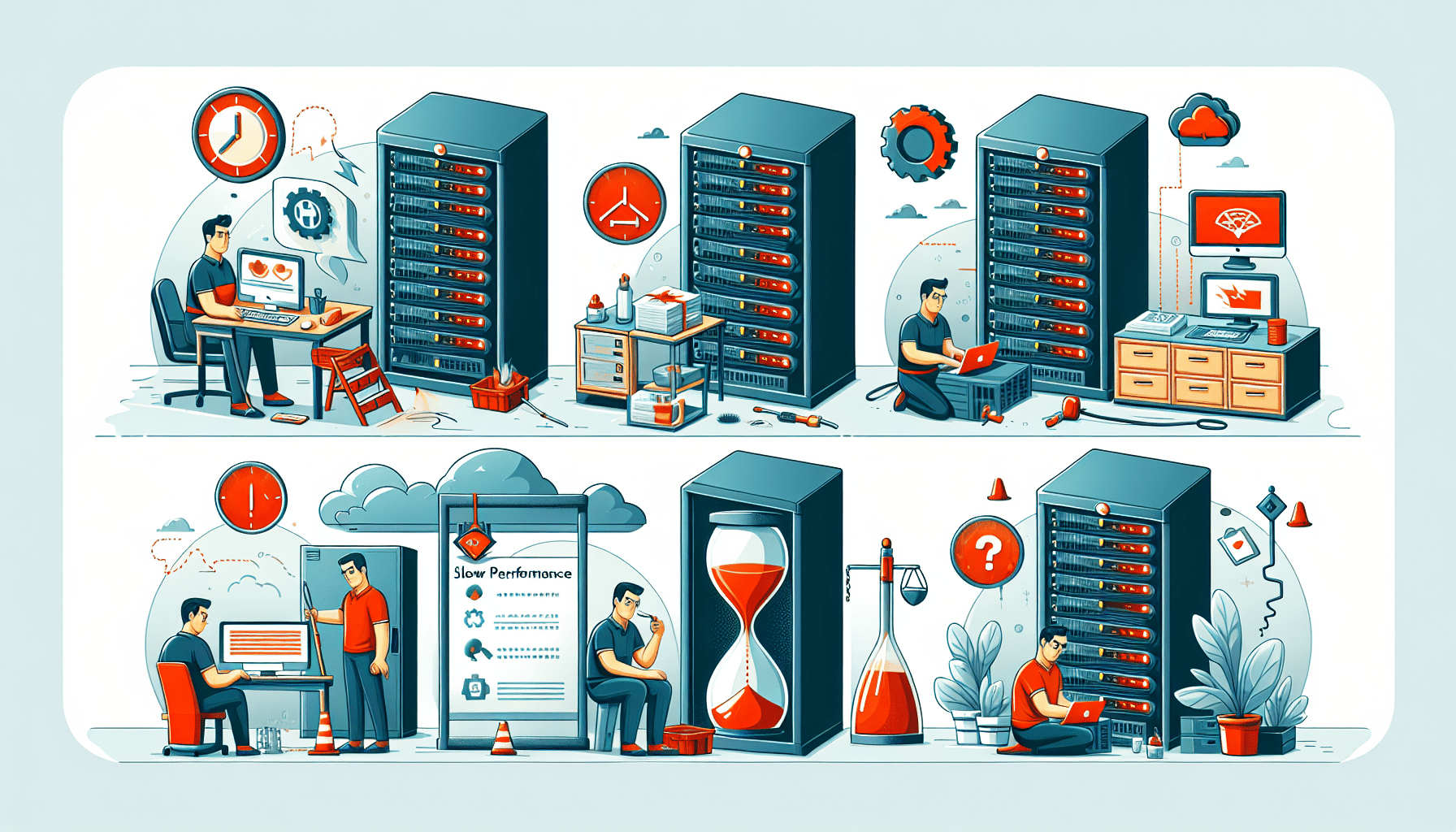The Role Of Server Management In Website Uptime
Have you ever wondered how server management impacts the uptime of your website? In this article, we will explore the crucial role that server management plays in ensuring your website stays online and accessible to your visitors. Let’s dive into the world of server management and discover how it can make a difference in the reliability of your website.

Understanding Server Management
Server management involves the monitoring and maintenance of servers to ensure they are running efficiently and effectively. This includes tasks such as installing updates, configuring settings, and troubleshooting any issues that may arise. By properly managing your servers, you can prevent downtime and keep your website up and running smoothly.
Importance of Regular Server Maintenance
Regular server maintenance is essential for ensuring the reliability and stability of your website. By regularly updating software, checking for security vulnerabilities, and optimizing performance, you can minimize the risk of downtime and keep your website running smoothly. Neglecting server maintenance can lead to issues such as slow load times, security breaches, and even complete server failures.
Benefits of Regular Server Maintenance
Regular server maintenance offers a range of benefits, including:
- Improved website performance
- Enhanced security
- Reduced downtime
- Better user experience
By investing time and resources into regular server maintenance, you can ensure that your website remains secure, reliable, and accessible to your visitors.
Monitoring Server Performance
Monitoring server performance is a crucial aspect of server management. By continuously monitoring key metrics such as CPU usage, memory usage, and disk space, you can identify any potential issues before they escalate into more significant problems. Proactive monitoring allows you to take preemptive action to optimize performance and prevent downtime.
Tools for Server Performance Monitoring
There are various tools available for monitoring server performance, such as:
| Tool | Description |
|---|---|
| Nagios | Open-source monitoring tool for server, network, and services |
| Zabbix | Monitoring solution with advanced features and capabilities |
| New Relic | Application monitoring tool for tracking website performance |
By using these tools to monitor your server’s performance, you can stay ahead of any issues and ensure that your website remains online and accessible.
Load Balancing for Website Uptime
Load balancing is a strategy used to distribute incoming network traffic across multiple servers. This helps to prevent any single server from becoming overwhelmed and ensures that your website remains accessible even during periods of high traffic. By utilizing load balancing techniques, you can improve the uptime and reliability of your website.
Types of Load Balancers
There are different types of load balancers that serve different purposes:
| Type | Description |
|---|---|
| Round Robin | Distributes traffic evenly across servers sequentially |
| Least Connections | Routes traffic to the server with the fewest active connections |
| IP Hash | Uses the client’s IP address to determine which server to route traffic to |
By implementing load balancing techniques, you can optimize server performance, improve website uptime, and provide a seamless user experience for your visitors.

Disaster Recovery Planning
Disaster recovery planning is essential for minimizing the impact of unexpected events on your website’s uptime. By creating a comprehensive disaster recovery plan, you can outline the steps to take in the event of a server failure, cyber attack, or natural disaster. Having a solid plan in place can help you quickly restore your website and minimize downtime.
Components of a Disaster Recovery Plan
A disaster recovery plan typically includes the following components:
- Backup and recovery procedures
- Communication protocols
- Emergency contact information
- Succession planning
By developing a detailed disaster recovery plan, you can ensure that your website is prepared for any unforeseen events and can quickly recover from any potential disruptions.
Importance of Security in Server Management
Security is a critical aspect of server management, especially in today’s digital landscape where cyber threats are becoming increasingly sophisticated. By implementing robust security measures, such as firewalls, encryption, and intrusion detection systems, you can protect your servers from unauthorized access and data breaches. Failing to prioritize security in server management can leave your website vulnerable to attacks and compromise the uptime of your website.
Best Practices for Server Security
To enhance server security, consider implementing the following best practices:
- Regular security audits
- Strong password policies
- Two-factor authentication
- Regular software updates
By following these best practices, you can strengthen the security of your servers and minimize the risk of security incidents that could impact your website’s uptime.
Choosing the Right Server Management Provider
When it comes to server management, it is essential to choose the right provider to ensure that your servers are in good hands. Look for a provider that offers a range of services, has a proven track record of reliability, and provides excellent customer support. By partnering with the right server management provider, you can have peace of mind knowing that your website is in safe hands.
Factors to Consider When Choosing a Server Management Provider
When selecting a server management provider, consider the following factors:
- Service offerings
- Pricing
- Service level agreements
- Reputation and reviews
By carefully evaluating these factors, you can find a server management provider that meets your needs and helps you maintain a reliable and efficient website.
Conclusion
In conclusion, server management plays a crucial role in maintaining the uptime and reliability of your website. By implementing proactive server management practices, such as regular maintenance, performance monitoring, load balancing, disaster recovery planning, and security measures, you can ensure that your website remains online and accessible to your visitors. Choose the right server management provider to help you effectively manage your servers and optimize the performance of your website. By prioritizing server management, you can provide a seamless user experience and build trust with your audience.











